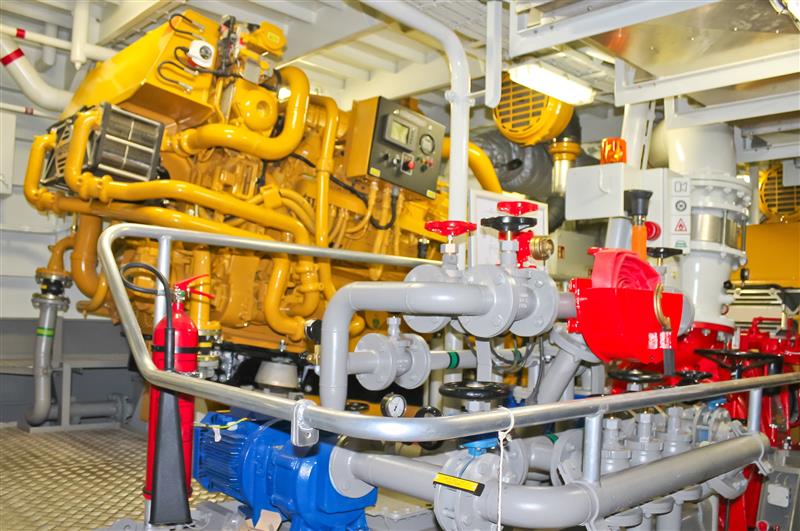How to Become a Marine Engineer in New Zealand: Your Complete Guide

What Does a Marine Engineer Do?
Marine engineers keep a ship running. They are responsible for the safe and efficient operation of the engines, machinery, and onboard systems that power the vessel. Onboard responsibilities include:
- Operating and maintaining propulsion and auxiliary machinery
- Monitoring fuel, lubricants, and electrical systems
- Carrying out repairs and diagnostics at sea
- Keeping engine room logs and maintenance schedules
- Ensuring compliance with safety, fire-fighting, and pollution prevention standards
Whether working on a passenger ferry, fishing vessel, offshore support vessel, or international ship, marine engineers are essential to vessel operations.
Marine Engineer Salary in New Zealand
Earnings vary depending on your level of certification, size of vessel, and operational limits. Entry-level engineers may earn from $55,000–$75,000 per year, while senior engineers with higher certificates (MEC 3, MEC 2, MEC 1) can earn well above $120,000 annually, particularly on offshore or international vessels.
Types of Marine Engineering Jobs
Marine engineers work across different parts of the industry, including:
- Domestic vessels – ferries, aquaculture, inshore fishing, and coastal shipping
- Deep-sea and offshore vessels – tankers, container ships, offshore drilling support
- Fishing vessels – engineering officers for trawlers and factory ships
- Specialised vessels – research ships, naval auxiliaries, superyachts
Engineers may also progress into shore-based roles such as surveyors, technical superintendents, or marine equipment specialists.
Career Progression for Marine Engineers
Maritime NZ’s SeaCert framework sets out a clear pathway through certificates of competency:
1. Entry Level – (International Foreign Going Vessel
- Engine Room Watch Rating (EWR) – supporting duties in the engine room.
- Able Seafarer Engine (AB Engine) – more responsibility within the engine department.
2. Marine Engineer Class 6 (MEC 6) – (Domestic, Inshore & Coastal Vessels)
- First certificate of competency.
- Allows you to work as an engineer on smaller vessels or as a second engineer on fishing ships up to 750 kW.
3. Marine Engineer Class 5 (MEC 5)
- Broader privileges, including non-passenger ships up to 24 m in offshore limits and second engineer roles on larger vessels.
4. Marine Engineer Class 4 (MEC 4)
- Chief engineer on vessels under 24 m in coastal/offshore limits or fishing ships under 3,000 kW.
5. Marine Engineer Class 3 (MEC 3)
- STCW certificate allowing you to serve as an engineering officer in charge of a watch on seagoing ships.
6. Marine Engineer Class 2 (MEC 2)
- Second engineer on ships of any propulsion power worldwide.
2. Marine Engineer Class 1 (MEC 1)
- The highest engineering certificate, qualifying you as Chief Engineer on any ship, in any operating area.
Each step requires a mix of sea service, on-board training, shore-based courses, and final exams through Maritime NZ.
Skills Needed to Succeed
A marine engineer must be technically skilled and safety-focused. Key skills include:
- Strong mechanical and electrical knowledge
- Problem-solving under pressure
- Knowledge of safety systems, fire-fighting, and pollution prevention
- Ability to work shifts and maintain focus in challenging conditions
- Teamwork and leadership in the engine department
Education and Training Providers
Formal training is required for most certificates. In New Zealand, recognised providers include:
- New Zealand Maritime School (Auckland)
- Skipper Training NZ (Nelson & other regional locations)
- Westport Deep Sea Fishing School (Westport)
Courses range from Level 3–6 NZ Certificates and Diplomas in Marine Engineering, with cadetships providing structured pathways into higher MEC qualifications.
Work Experience – Internships & Cadetships
Most engineering certificates require documented sea service and completion of a Maritime NZ Training Record Book (TRB). Many engineers enter via cadetships, combining classroom learning with structured time at sea. Cadetships are available through shipping companies, fishing companies, and training institutes.
Licences & Certifications
To work as an engineer on a commercial vessel in NZ you must hold a valid Certificate of Competency (CoC) issued by Maritime NZ. The certificate level you hold defines what vessels you can work on, in which operational limits, and in what role (engineer, second engineer, chief engineer). Certificates must be supported by:
- Current medical fitness certificate
- STCW basic training and advanced firefighting (for higher MECs)
- Ancillary certificates such as first aid, survival craft, and GMDSS (depending on level)
How Manaaki Marine Helps Aspiring Engineers
At Manaaki Marine, we connect aspiring and qualified engineers with opportunities across New Zealand’s maritime industry. Whether you are just starting out as a trainee or looking to step into senior engineer positions, we work with vessel operators nationwide to match skills with demand.
Start Your Marine Engineering Career
Becoming a marine engineer is a rewarding pathway that opens doors to domestic shipping, offshore opportunities, and international careers. With structured training, sea time, and the right support, you can progress from entry-level certificates to chief engineer on some of the world’s most advanced vessels.
Ready to start your journey? Reach out to Manaaki Marine today and take the first step toward a career as a marine engineer.
